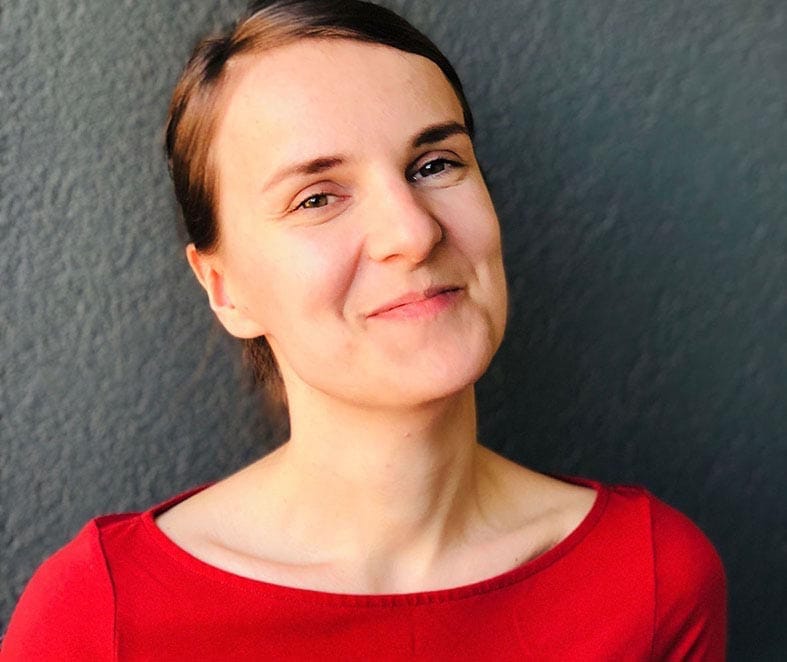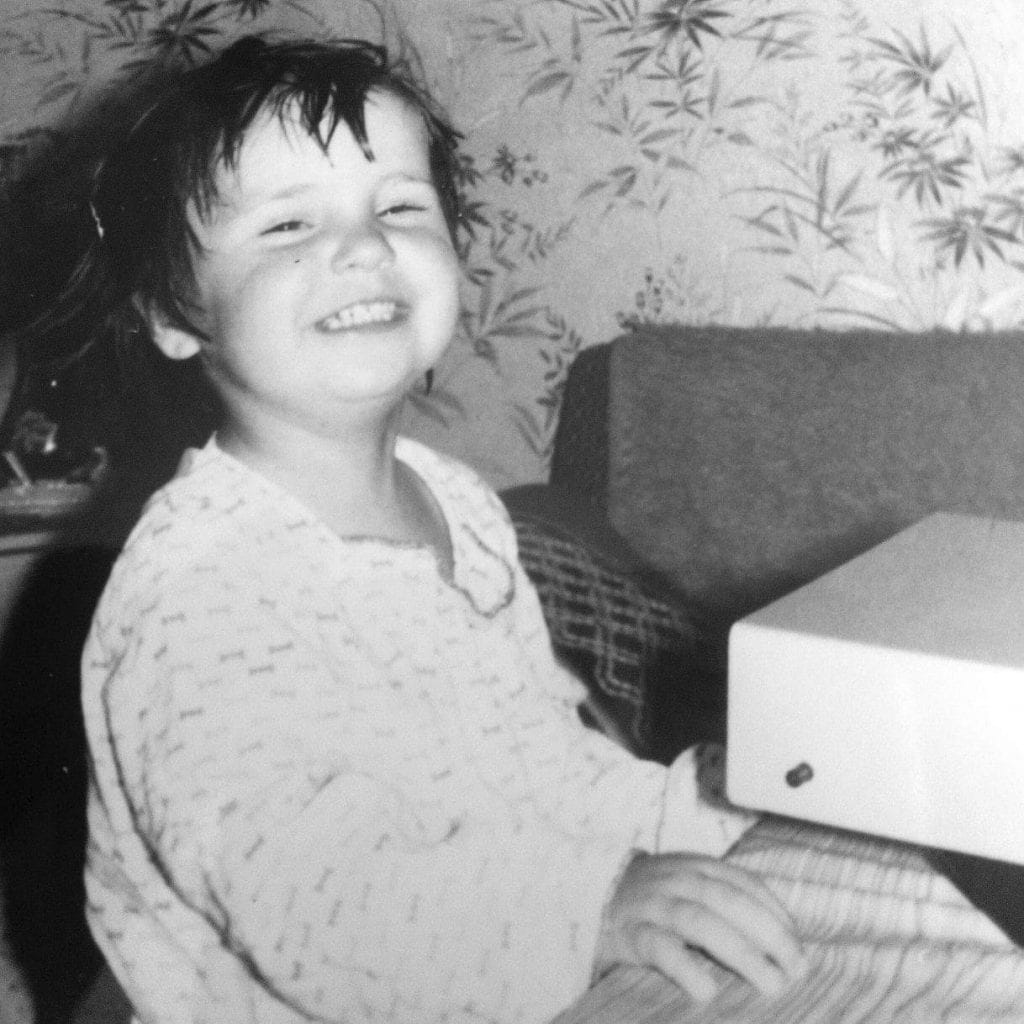Sabine Geithner: “Bertha Benz is a developer.”
Mercedes-Benz.io · April 15, 2021
Sabine Geithner works as the Lead Link Mobile Engineering at Mercedes-Benz.io. She combines 13 years of experience, working in different leadership roles from Project Management, Online Marketing to Software Development.
Until recently, she worked as an iOS developer for the Bertha app. In her current position, she is in charge of hiring the right mobile developers to drive the mobile strategy of the company, fostering a culture of knowledge-sharing and providing an environment for professional growth for mobile developers.In her second role as People Promoter she helps MB.ioneers set meaningful professional development goals and supports them to achieve these goals.
Sabine's career starts with her studies. She owns a university diploma in Biotechnology. The requirement for her first semester was an introduction to Java class. It may seem that Sabine has a bit of unusual career background, although it is not uncommon to find people with diverse backgrounds in software development.
In this interview, we want to find out what makes tech jobs interesting to women and how we can inspire young girls to strive towards such jobs. Hello, Sabine!

You've had quite the unconventional career journey—what did your start as a Developer look like?
My journey to software development kicked off when I turned 30 and looked back at my life where I was and where I wanted to be. At that time, I was working as Head of Online Marketing and Consumer Insights. My responsibilities included: writing HTML for our SEO landing pages, as well as analyzing consumer data to get valuable insights. So, I had already learned some web development and was using my rudimentary programming skills, for things like writing VBA scripts for my Excel Sheets and SQL statements for MS Access.
I realized I actually liked programming and wanted to learn more. I started to look for classes online and in Berlin, where I live. Coincidentally, an in-person program called Rails Girls Berlin (now called Code Curious) had just started. They offered free programming workshops for women. I had missed their first workshop, but I liked their idea so much that I offered to join the organizer team and support with marketing. This was the turning point!
What made you decide to completely pursue a career in tech?
By organizing the mentioned workshops for Code Curious I was able to witness women of all backgrounds quitting their jobs and pursuing successful careers as software developers. It was so inspiring that I decided to leave my own job, spend a few months learning with online courses, find myself an internship, and become a software developer. I was 31 years old when I took that step.
What are some of the challenges you have faced in your career?
When I started seriously considering software development as a career, I received some unwelcome comments from people. They said things like “You won’t be able to learn this so fast. You are learning the wrong programming language. You should learn [insert a preferred language] instead. I would never hire someone who hasn’t been writing code since they were little.” I could have easily been discouraged by their words. Luckily, I like to prove people wrong and understood it as a challenge to show them: it can be done and I will do it.
In the early years of my career, I sometimes wasn’t taken as seriously as my male counterparts and had to have several critical conversations confronting people with their behavior. Often they were completely shocked that they behaved this way and every-time things improved significantly afterwards. I wish I didn’t have to jump into these conversations, however, I can only encourage everyone (especially younger women) to confront such behavior. It helped me, and no one should ever feel intimidated and helpless.
What are some of the positive experiences you have gained throughout your career?
There were positive ones that encouraged and supported me to pursue my dream of becoming a Developer. For example, most of the coaches for Rails Girls Berlin were men and the whole Ruby community was actively working towards increasing the number of women in their field. Also, the people who gave me my very first iOS internship were super trusting in my abilities (I had only done online courses before that) and made me feel at home and welcome in the Developer scene.
There are also many men at Mercedes-Benz.io — who understand the value a diverse workforce adds to our team culture and performance and are actively working on hiring more diverse people.
What does a day-in-the-life at Mercedes-Benz.io look like for you?
There is little to no routine in software development. A “typical day” could look like this:
The day kicks off with a meeting that we call Stand-Up, where everyone gives an update on the progress of their current tasks. We also discuss blockers or topics that need more clarification and then talk about what we plan on doing today. Afterwards, everyone starts working on current tasks. If we work on a new feature, we will meet to talk about how to approach the problem.
These conversations can stretch over several teams, including backend and design. We talk through different approaches or give feedback to someone else’s result. At the end of the day, we publish the code we wrote to the whole codebase and have a coworker give us feedback on our solution. We also create a new internal version, that the team can use to test the new features we implemented during the day.
Let's take a look at the bigger picture. According to a 2019 study by the UK Department of Education, parents and teachers are less likely to be encourage girls to study STEM subjects. Since only 3% of females say a career in technology is their first choice, a lower female participation in STEM fields equates to fewer female role models for girls.
Why could (or should) women be interested in becoming a Developer?
Let‘s stop putting people into boxes. The job is interesting for anyone who loves logic, no matter the gender. However, I’ve also observed that children’s interests are largely formed by their environment. If you offer girls only dolls and boys only cars, it’s no surprise they end up having a preference for one. I don’t have kids of my own, but I know that my interest in science was sparked at a very young age by getting microscopes and physics toys, so I give the same toys to my nieces.
Qualities of high-performing teams are made up of a wide breadth of holistic skills, such as empathy, sensitivity, creativity, and more! Regardless of gender, many roles benefit from having these qualities, e.g. the Plant, the Coordinator, and the Teamworker in Belbin’s model of Team Roles. Thus, I am certain that anyone can be interested in becoming a Developer but success does not depend on your gender.
What is the benefit of working in the tech industry?
Oh, there are many! From a lifestyle perspective, I think no other job allows for more freedom. Working remotely and asynchronously at weird hours has been common for software developers for a long time. This is absolutely perfect for those who want to have lots of freedom or need to juggle jobs and family. It’s also easy to find a job because software developers are always in demand—and always will be!
For me — the biggest benefit is actually the effect it has on your brain. When I started out, it really felt like my brain was growing. I mean it! You often need to keep a lot of thoughts and ideas in your head in order to figure out how to solve an issue. On top of that, it’s a job that requires life-long learning and keeps you mentally fit in the long-term.
Let's talk about needed skills and interests. What do you think is the most important strength for software developers to ‘develop’?
According to a study published in Nature, the most important strength for software developers is fluid reasoning and memory capacity (the ability to solve problems with logic and to keep several solutions/ideas in your head) followed by language ability. Funnily enough, numeracy (being good at Mathematics) has the lowest correlation with programming abilities.
However, being a successful software developer requires more than just being able to write good code. Developers need to be able to communicate their ideas to their client, their colleagues, and their boss. Communication skills are key. And of course, if you juggle several projects, you need to be organized, too. These skills become more and more important the more seniority you gain, the more you interact with stakeholders and the more projects you juggle at the same time.
How can I start getting into developing?
- To figure out if coding is their interest, I recommend codecademy. It’s a gamified way to learn basic programming principles and highly addictive to people who like logical challenges.
- For taking a step further, there are plenty of online platforms that offer pretty good courses, many of which are free. For example, most courses on coursera can be attended without paying. I started 7 years ago with team treehouse. I really liked their curriculum back then and it helped me stay motivated. You are learning software development by working on small projects that grow bit by bit and it is extremely rewarding to see the result so quickly.
- To go the academic way, there is even a women-only Computer Science study course offered by the HTW in Berlin.
- There are also meetups (e.g. code curious, women who code, women techmakers) in bigger cities where women in tech help others get into and continue learning software development.
What can I do as a parent to bring this professional field closer to my child and spark their interest?
- For parents of young children, there are also plenty of opportunities. There is the code.org where kids can learn programming while building or playing a game.
- Some toys help children practice logical thinking and learn the basics of computer instructions, e.g. Osmo.
- There are hardware kits, like Kano, that allow kids to assemble their own computers and gives them an insight into how computers work.
- And don't forget free meetups and workshops (often called “Coder Dojo”) for kids in bigger cities where they can learn coding in a group.
- One of the founders of Rails Girls Berlin also wrote a children’s book for girls called “Hello Ruby,” which also has a website to help parents with their kids quest to conquer the world with code.

What is your wish for the future of women in tech?
I hope that more women consider software development as a career and find more and more representation in their teams, at conferences and in technical leadership positions. My wish is that we can at one point drop the “female” in-front of the introduction and refer to people who happen to identify as female, just as “software developer” or “CTO” instead of “female software developer” or “female CTO”.
And lastly...why this headline? Why do you think Bertha Benz would be a Developer and active in mobile engineering today?
The headline is 100 percent correct. Bertha Benz would be a software engineer because she was a woman who valued freedom and independence and wasn’t afraid of entering a male-dominated area.
**Want to support and inspire women for tech professions, want to change the game, and know talented women who need to become developers?
Share this article** & APPLY NOW
Mercedes-Benz.io
